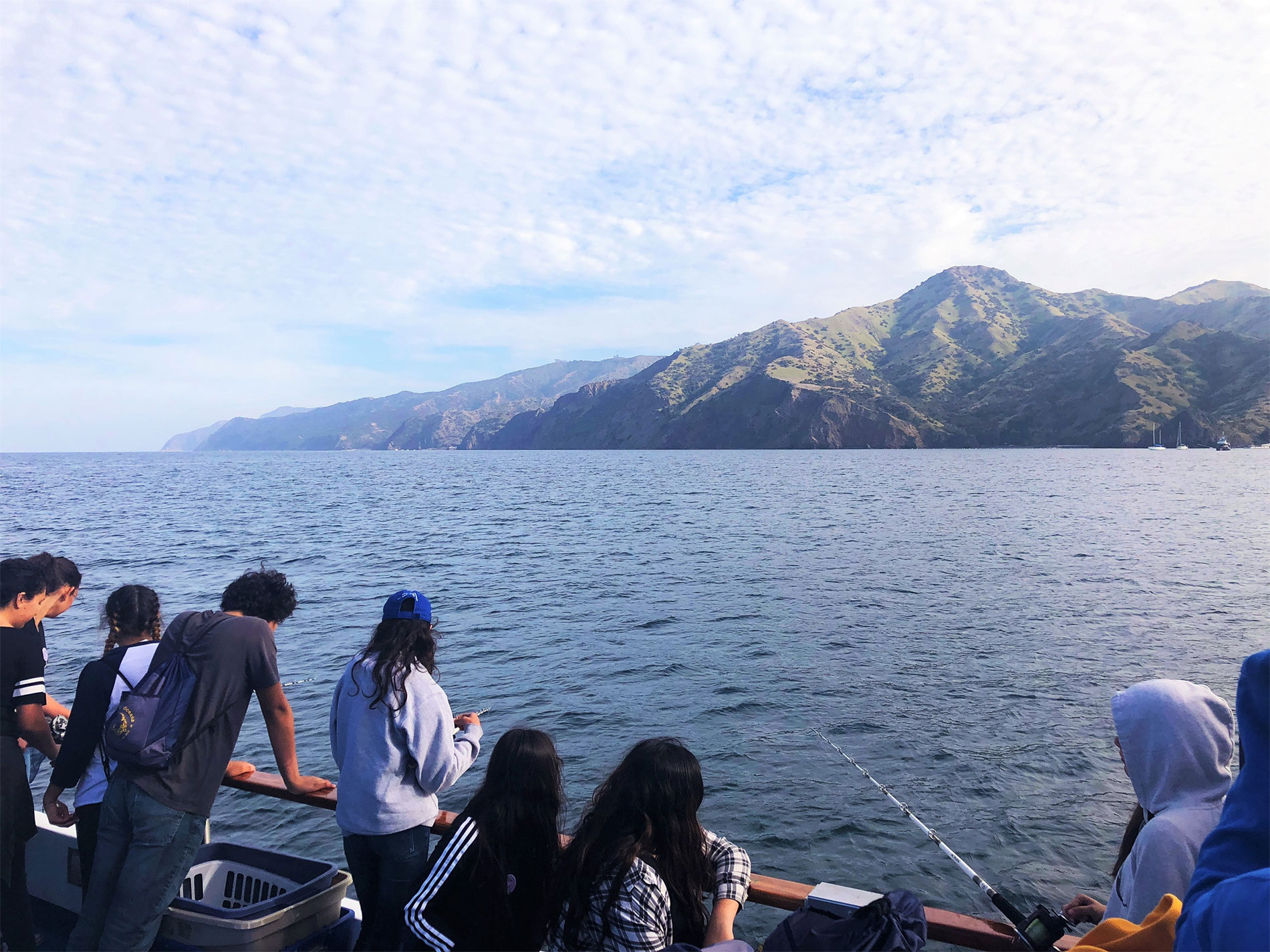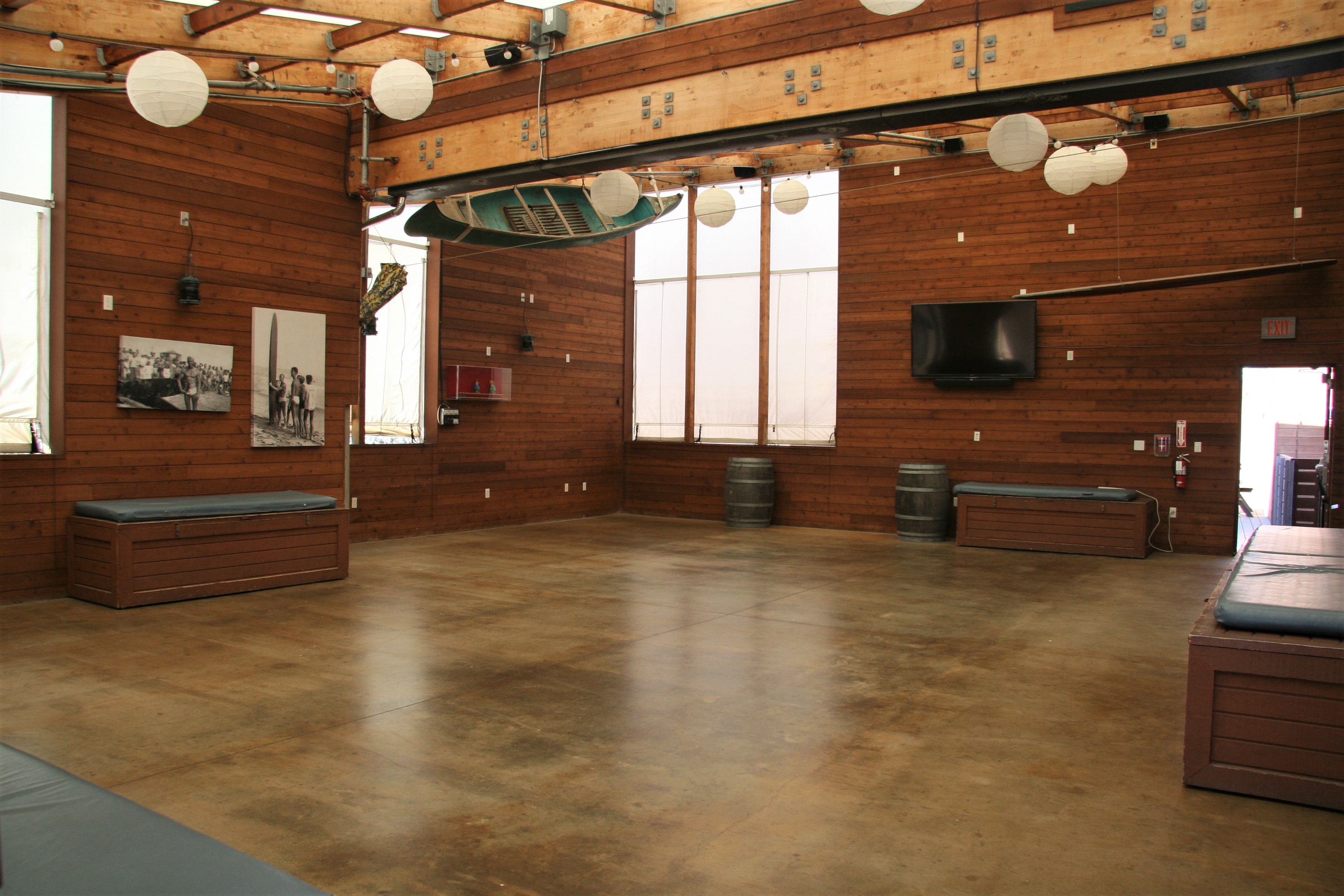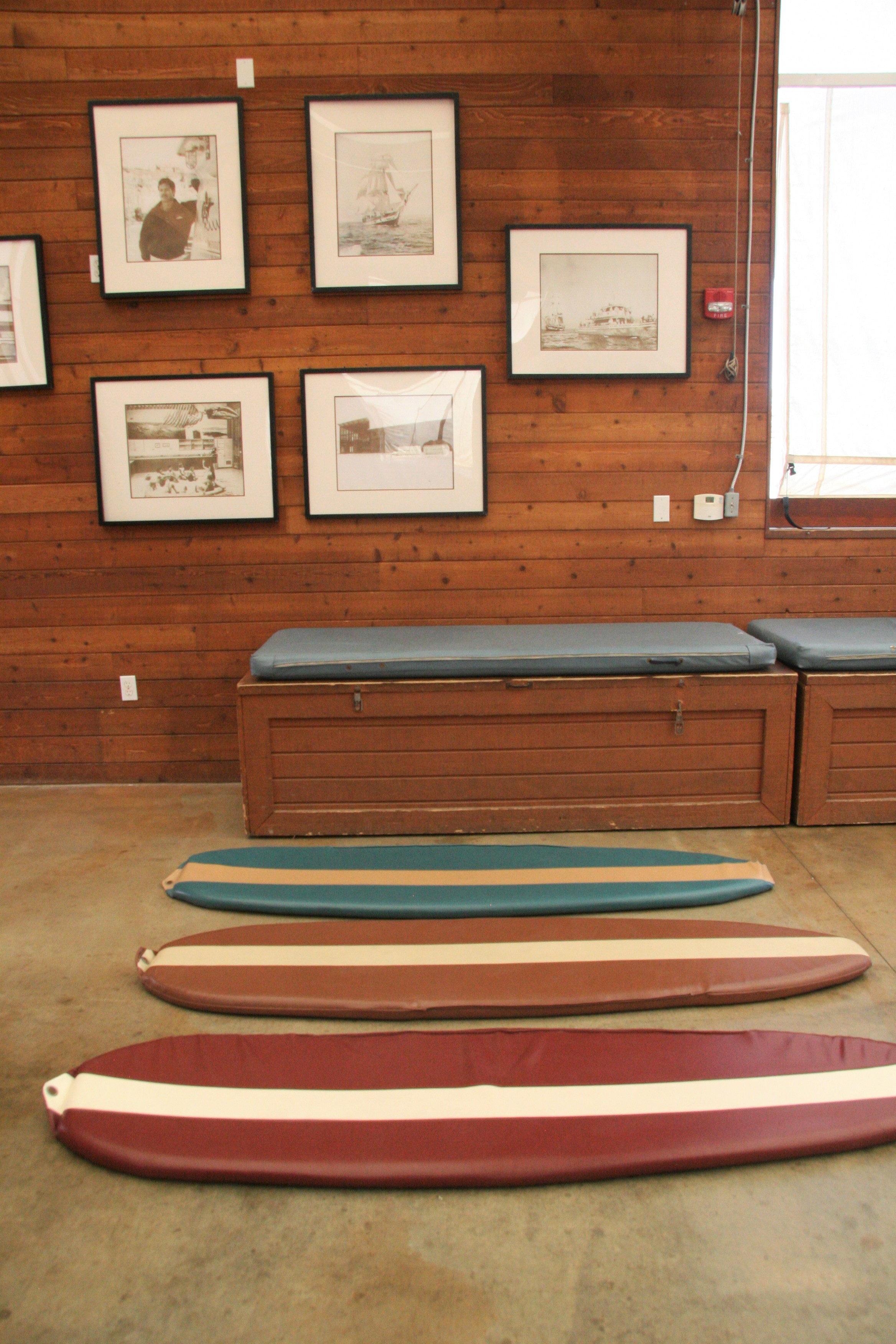Catalina Island Ecology Safari Overnight
Overview
4th and Up
30 hours
Your Experience
Explore island ecosystems and engage in educational activities during the boat crossing to Catalina, on shore, and in our Dana Point facility. Snorkeling, geologic investigations, plant classification, dissections, nighttime activities, and catch-and-release fishing make this program an action-packed island adventure! This program is an educational adventure offering participants an opportunity to explore the ecology of Catalina Island, both on land and in the surrounding waters. Students will develop a unique perspective and gain in-depth knowledge of this popular Channel Island. As the students head out to sea they will look for ocean wildlife. At the island, the students will engage in hiking, snorkeling, and catch-and-release fishing. The students return to Ocean Institute for dinner and nighttime activities, and spend the night on land in our Dana Point facility. In the morning students perform fish and squid dissections.
Specifications
- Available Times
- 6:00am to 11:30am the next day
- 6:00pm to 8:00pm the next day
- Need a different time? Contact us!
- Capacity
- 45 total participants
- Participants include students, teachers, and chaperones.
- We do ask that you bring a maximum of six adults.
- Larger group? Contact us for availability.
- Pricing
- Please see our Pricing page for current rates.
Sample Schedule
Day 1
6:00am – Arrive at Ocean Institute; snorkel gear fitting
7:00am – Boat leaves for Catalina. Breakfast onboard
12:00pm – Arrive at Two Harbors Catalina, Lunch
12:30pm – Geology Hike, Plant Identification, Snorkeling, Mudflat Hike, Catch-and-Release Fishing
3:00pm – Board Boat
7:00pm – Return to Ocean Institute for dinner
8:00pm – Nighttime Rotations
9:00pm – Lights out
Day 2
6:00am – Wake Up & Breakfast
7:00am – Dissections
11:30pm – Pack up and head out
Get More Information
fieldtrips@oceaninstitute.org
949-496-2274


Science Overnight Details
Sleeping Arrangements
Food
Packing List
For safety reasons, students and adults participating in the program must wear rubber-soled, closed-toe/ closed-heel shoes. The weather is often cooler at the Ocean Institute than it is inland, so make sure your students are prepared.
- Sleeping bag
- Pillow
- Pajamas
- Change of clothes
- Toiletries (toothbrush, toothpaste, face wash, etc.)
- Water
- Sunscreen
- Layers
- Jacket
- Beanie
- Hat
- Gloves


